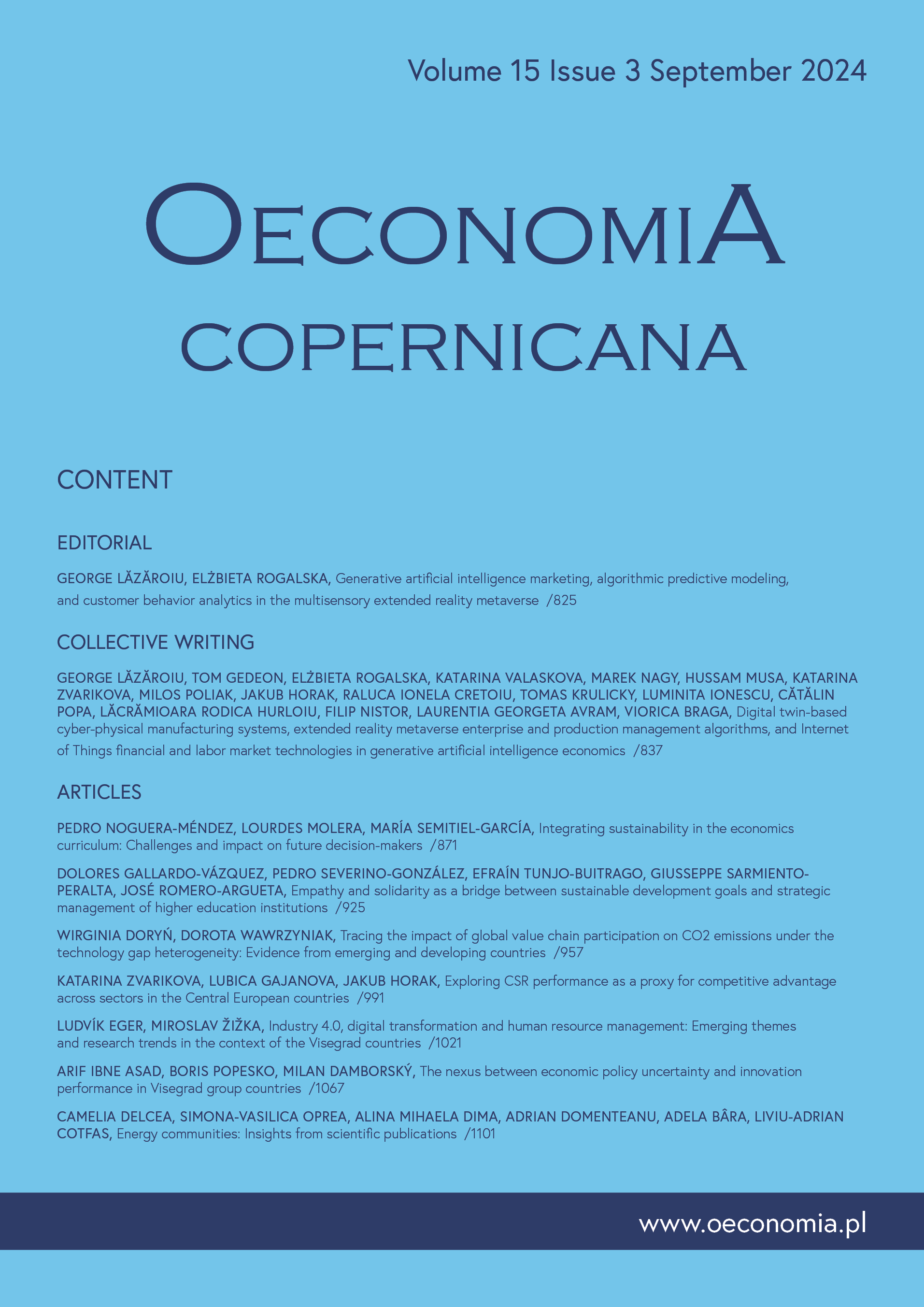The nexus between economic policy uncertainty and innovation
performance in Visegrad group countries
The nexus between economic policy uncertainty and innovation
performance in Visegrad group countries
Author(s): Arif Ibne Asad, Boris Popesko, Milan DamborskýSubject(s): National Economy, Supranational / Global Economy, Socio-Economic Research
Published by: Instytut Badań Gospodarczych
Keywords: economic policy uncertainty (EPU); innovation; research and development (R&D) spend- ing; system generalized method of moments (GMM); Visegrad Group countries;
Summary/Abstract: Research background: Research and development (R&D) spending and innovation initiativesplay a crucial role in promoting growth. However, economic policy uncertainty (EPU) isa reality that cannot be avoided when making business decisions. The Visegrad Group (V4),consisting of Poland, Hungary, the Czech Republic, and Slovakia, is considered a regional alliance of four Central European countries with significant potential for innovation andeconomic development because these nations’ economies are encountering the so-called ‘mid-dle-income trap’.Purpose of the article: The paper’s main objective is to examine the impact of economic policyuncertainty on innovation performance and R&D expenditures in the Visegrad Group coun-tries.Methods: The study used comparative panel models analysis (fixed effect, random effect, andsystem generalized method of moments [GMM]) between 2012 and 2021. The models includethe lag periods for EPU to provide a better perspective on the short-term impact and evenlong-term consequences of EPU.Findings & value added: The directions of innovation output and R&D expenditures aredirectly related to EPU. In V4 economies, businesses may reduce their spending on R&D andinnovation activities when confronted with high EPU; however, over time, the volatility ofeconomic uncertainties is adjusted for. Additionally, the political and economic control varia-bles increase the number of dimensions used in the models, which will motivate additionalEPU studies in the field. Although EPU studies are widely accepted, our investigation showsthat the topic is still not properly developed for Visegrad Group countries in relation to howEPU affects innovation activity. Another unique feature of the current study is the diversity ofvariables used, including the EPU lag variables, variables representing essential economic andpolitical issues, as well as control variables, thus incorporating complex panel models.
Journal: Oeconomia Copernicana
- Issue Year: 15/2024
- Issue No: 3
- Page Range: 1067-1100
- Page Count: 34
- Language: English

